Last week, a former Emmerdale actress became the unlikely recipient of the title ‘most hated woman in Britain’. Roxanne Pallett dominated tabloid headlines after accusing fellow Celebrity Big Brother contestant Ryan Thomas of hitting her ‘like a boxer would punch a bag’, when footage of the incident told a very different – playful, totally innocuous – story.
There’s no excusing her actions, which threatened to destroy an innocent man’s career and tear his reputation to tatters. The actress was also attacked for ‘making a mockery’ of genuine victims of abuse. She apologised, but her vilification continued last week on Twitter, where words like ‘bitch’ and ‘psycho’ were tossed about amid disturbing threats of physical harm. The longer the storm continued, the more uncomfortable questions it raised about the level of public vitriol we now direct at those who have somehow transgressed – and the role social media plays in fuelling our rage.
On any given day, pockets of Twitter resemble a pitchfork-wielding mob baying for the blood of individuals who’ve said or done something deemed objectionable. Sometimes, like last week, it feels as though the entire community is united in irate condemnation – often despite having only the flimsiest knowledge of the person or situation being condemned (case in point: this year’s CBB has been watched by fewer than two million viewers, meaning many of those commenting on the event in question wouldn’t have seen it at the time of broadcast).
So what is it about social media that makes us so damned livid all the time? ‘It gives us a very unusual modern experience,’ says psychologist Emma Kenny. ‘In the past, when we saw something on television that made us angry, we’d have had time to process it, and by the time we got round to writing to Ofcom, we’d have calmed down. The difference is that, now, we have an outlet for instant emotional displacement: I have a feeling, and now I’ve put it out there into the world, it’s gone.’
Venting our anger by tapping out a quick tweet gives us a sense of instant release. But as Emma points out, it has toxic side effects. When we unite with thousands of others who share our annoyance, we’re giving permission to those who have genuine aggression and hostility issues to indulge them. The mob mentality of Twitter ‘exacerbates and volumises that kind of behaviour,’ she says. No wonder researchers at Beihang University in Bejing found that anger spreads faster and more broadly than any other emotion on social media. It’s contagious.
It’s also easier than any of us might like to admit to forget that the individuals we’re criticising online are actual human beings, who have the potential to be hurt by our attacks. That’s something influencer Scarlett Dixon, who blogs under the name Scarlett London, discovered last week, when she was publicly shamed for posting a photograph of herself on Instagram.
The offending picture showed the 24-year-old sitting on her bed, surrounded by heart-shaped balloons, appearing to be enjoying a breakfast of pancakes and ‘bottomless tea’. However, a closer look revealed that her cup of tea was empty, the pancakes were actually folded tortilla wraps and a bottle of Listerine – which sponsored the post – was displayed prominently on her bedside table.
The post went viral, attracting ridicule from thousands of social media users who declared it the ultimate example of Insta- fakeness, in which influencers are paid by brands to peddle perfect-seeming lives. But inevitably, some of the criticism Scarlett received was far more sinister. ‘Initially, I found the comments quite funny,’ she tells Grazia. ‘But they quickly became a vicious bullying campaign, publicly shaming and mocking me. A lot of comments said I was the reason so many young people suffer from mental health issues, which is a rather large claim to pin on me. One said: “Just imagine it... you’ve got glass embedded in your flesh, you are bleeding to death and end up in A&E with permanent scarring.”’
Click through to see all of the inspirational Instagram accounts you should be following...
Inspirational Instagram Accounts You Should Follow
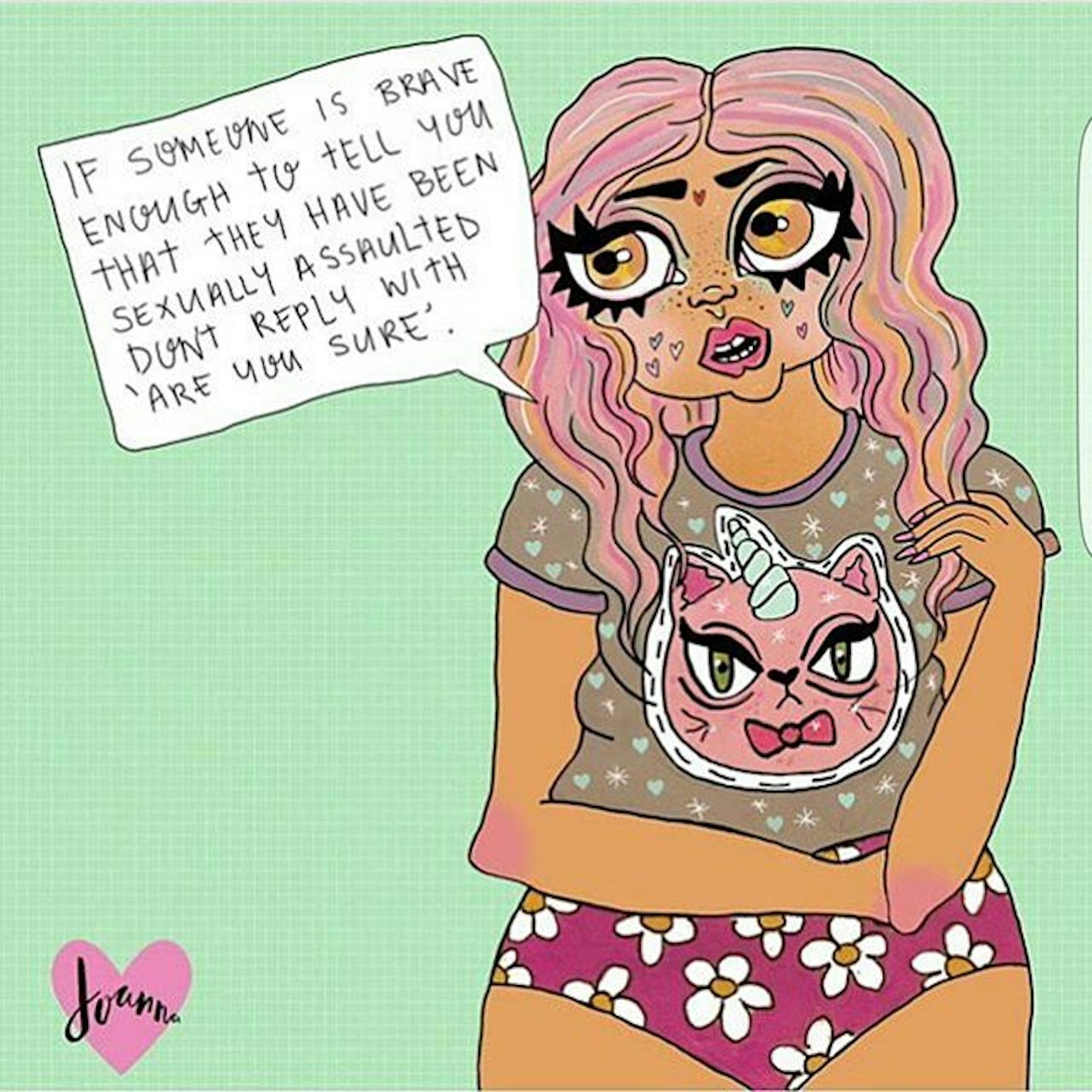 1 of 24
1 of 24Women In Comics
Illustrating inspirational images and depicting women in comic form, this account will brighten up your timeline with some home truths in the form of pretty pictures.
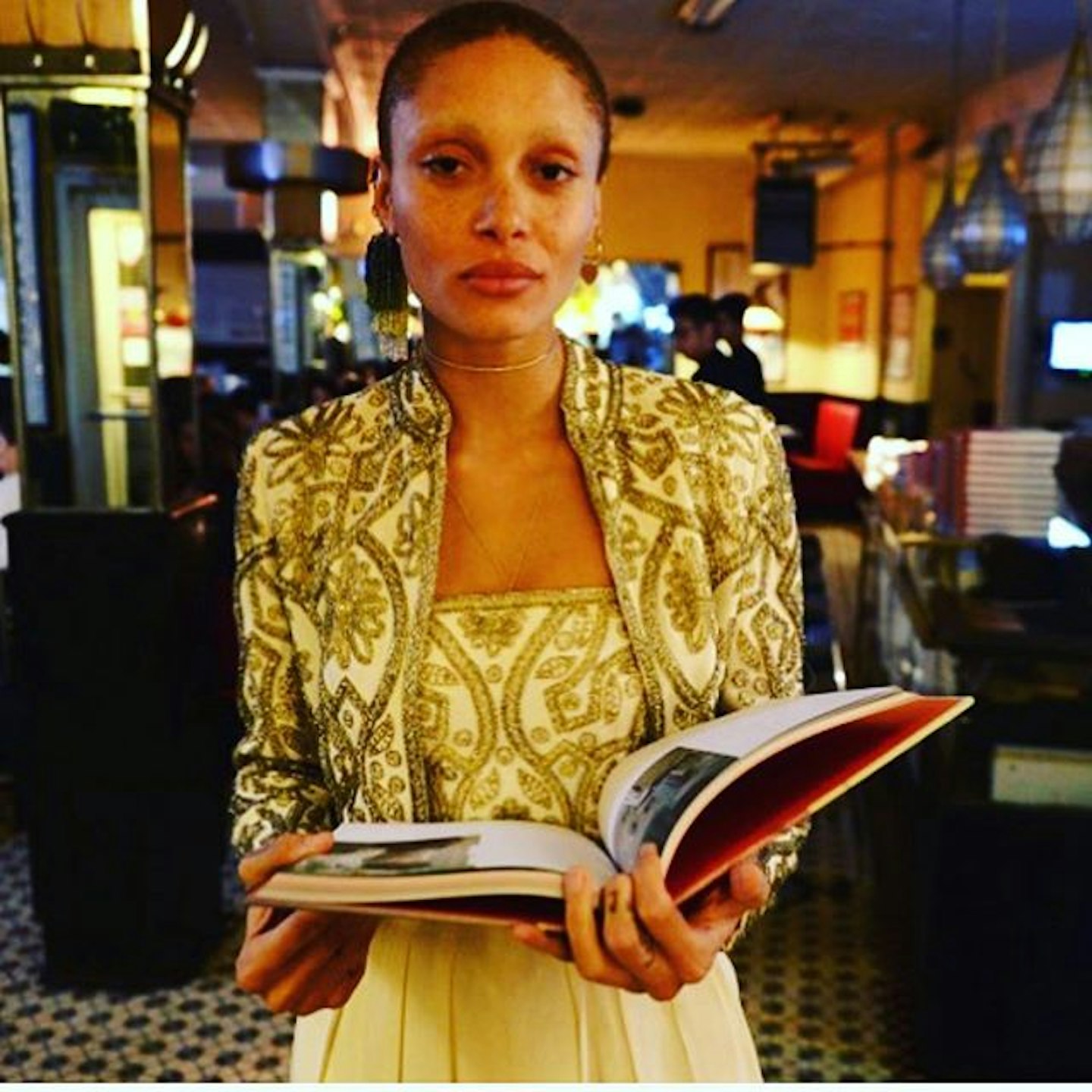 2 of 24
2 of 24Adwoa Aboah
This insanely beautiful model founded GURLS TALK, an online community where women from all backgrounds can share their personal experiences in a safe space.
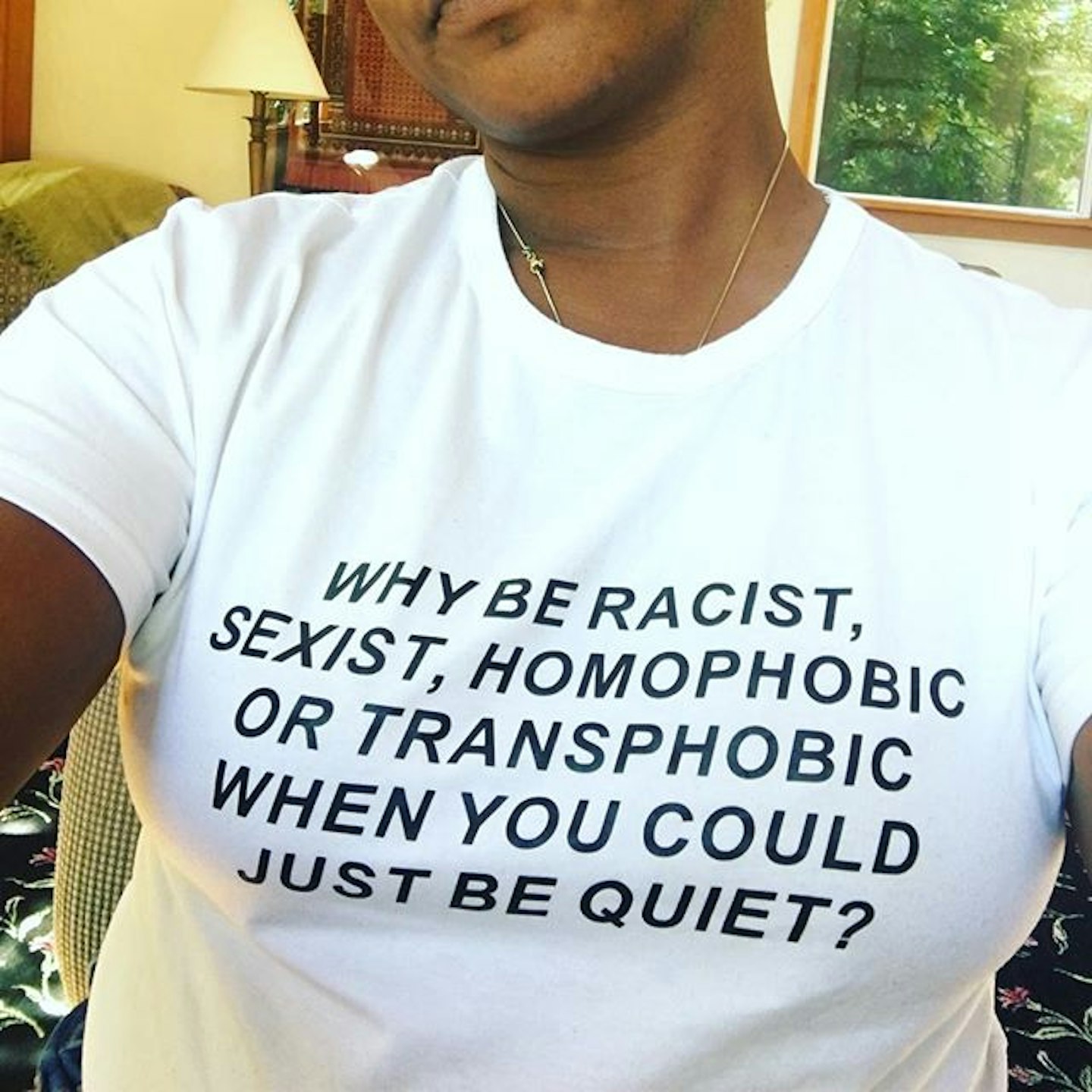 3 of 24
3 of 24Alicia Garza
Alicia is an editor and activist who co-created #BlackLivesMatter. Her feed is a mixture of relatable memes, unfiltered selfies and educational posts to keep you woke.
.jpg?auto=format&w=1440&q=80) 4 of 24
4 of 24Amandla Stenberg
You might recognise this actor from The Hunger Games, when she played the character only character we cried endless tears for, Rue. Now, while still acting, she's a full-fledged activist posting about everything gender, feminism and black culture.
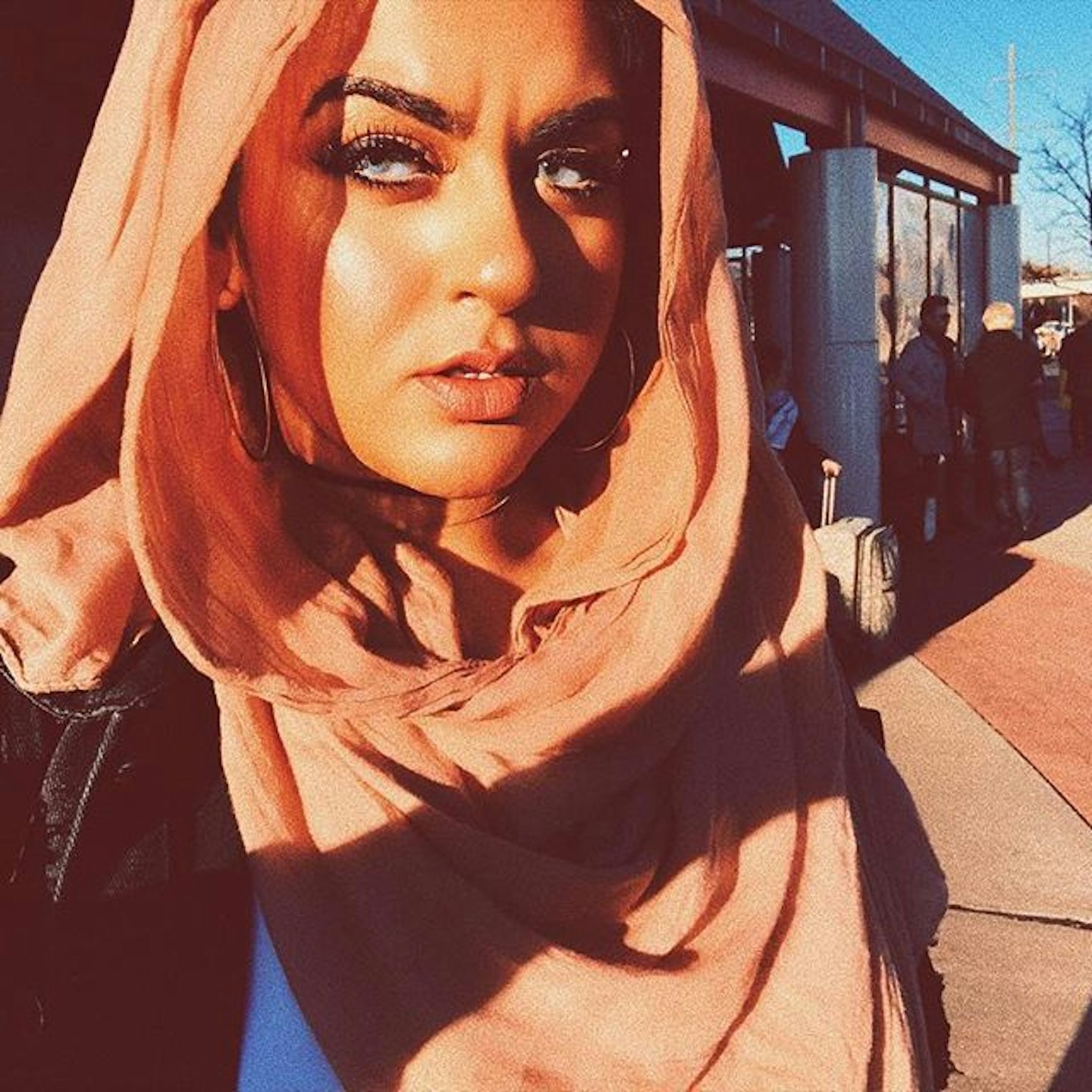 5 of 24
5 of 24MuslimGirl/Amani
Amani created the fast-growing activism account @MuslimGirl, another one you should definitely follow. She has spoken across the world about Muslim women and posts everything from badass selfies to stats you need to know.
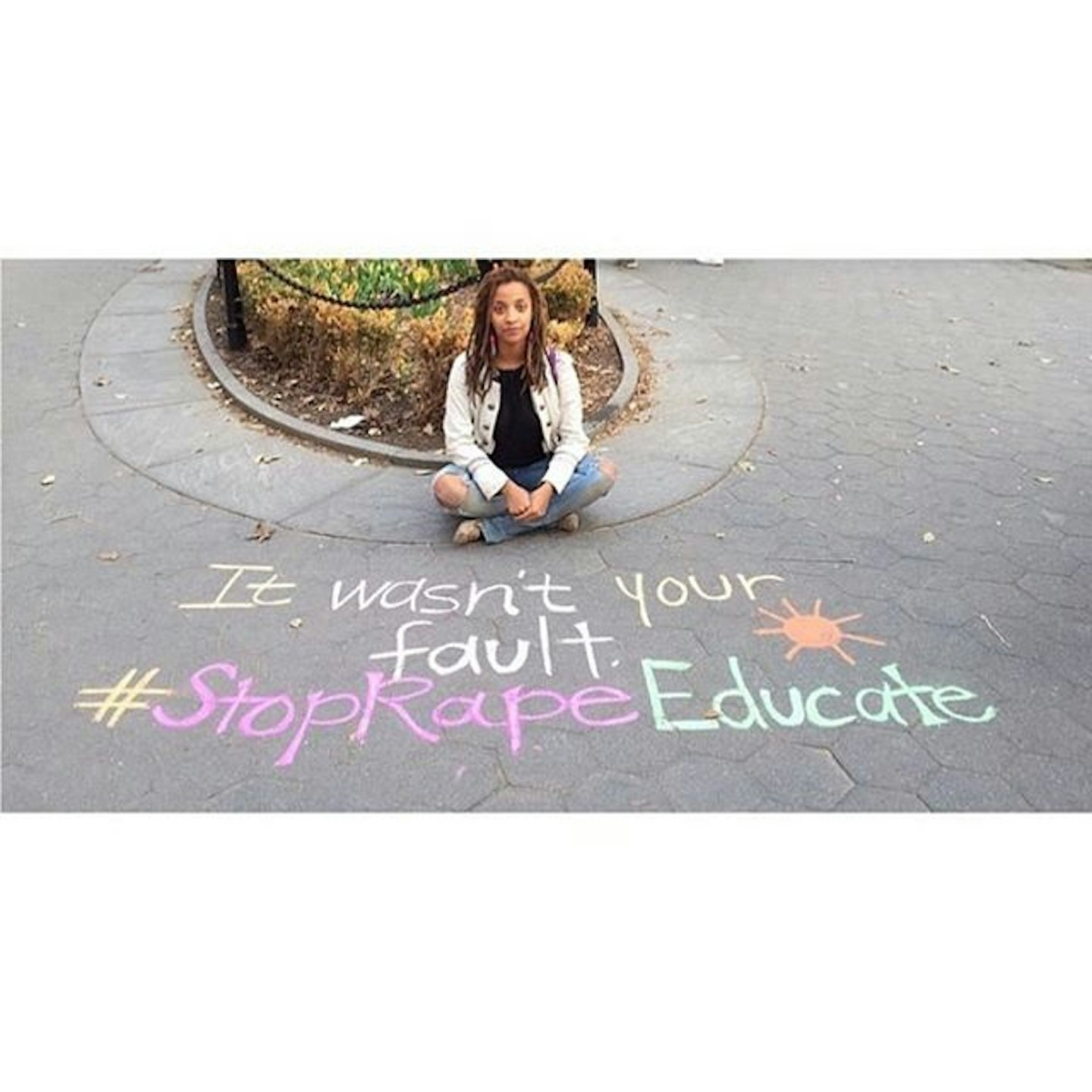 6 of 24
6 of 24Amber Amour
Amber created @CreatingConsentCulture which aims to educate people on rape culture and support rape and sexual assault survivors. She's also outspoken about racism and sex work, her feed will be endless many dinner party talking points.
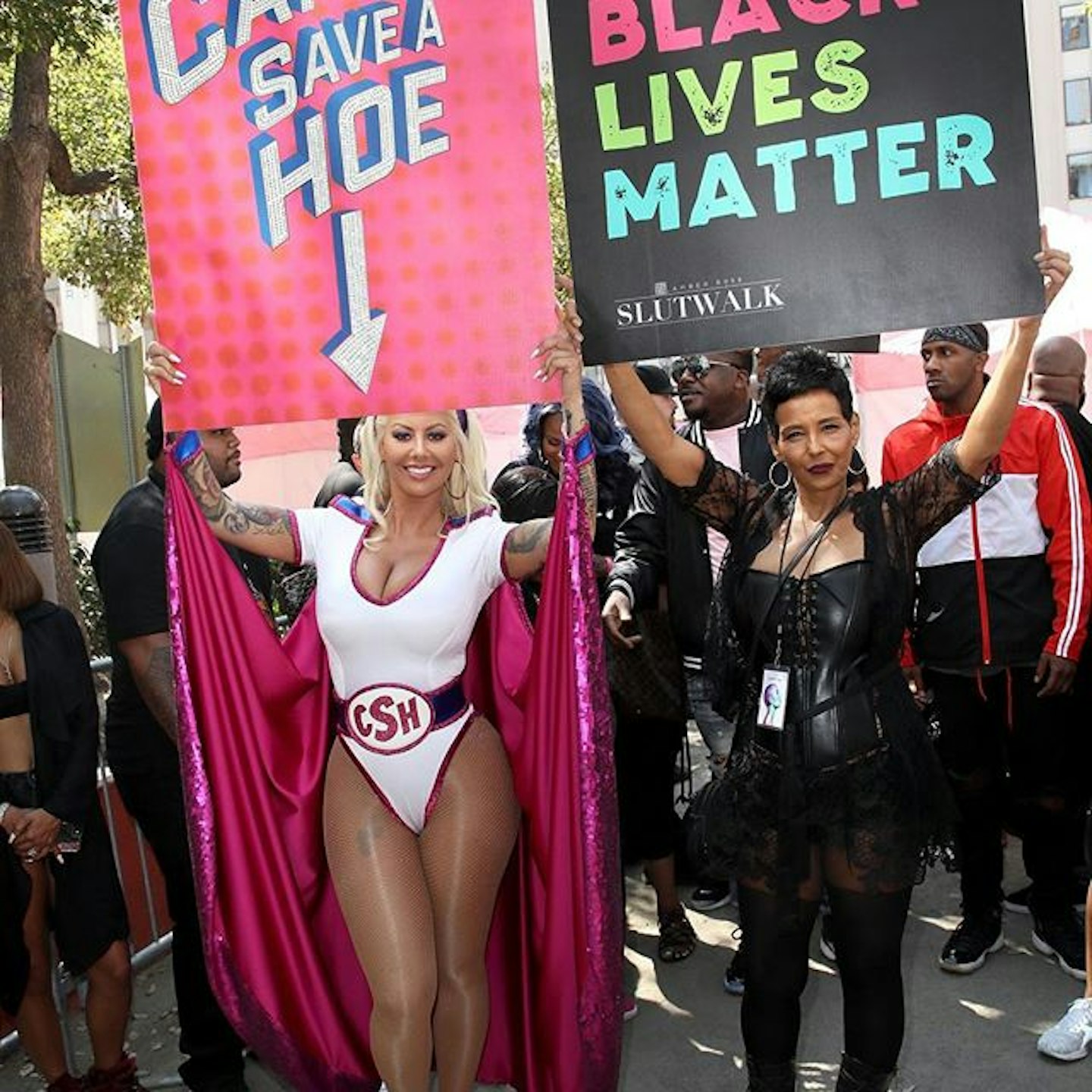 7 of 24
7 of 24Amber Rose
You may only know Amber Rose as Kanye's ex, but think again. Amber is a sex positivity icon, with her own pocast 'Loveline with Amber Rose' up until 2018 that aimed to promote healthy sexual relationships and self-love. If you can get past the fact she advertised flat tummy tea once (fgs Amber), you'll love her feminism-filled feed.
.jpg?auto=format&w=1440&q=80) 8 of 24
8 of 24Beverly Bond
Author of 'Black Girls Rock', Beverly's posts will have you both inspired and enraged, filled with commentary on everyday injustices.
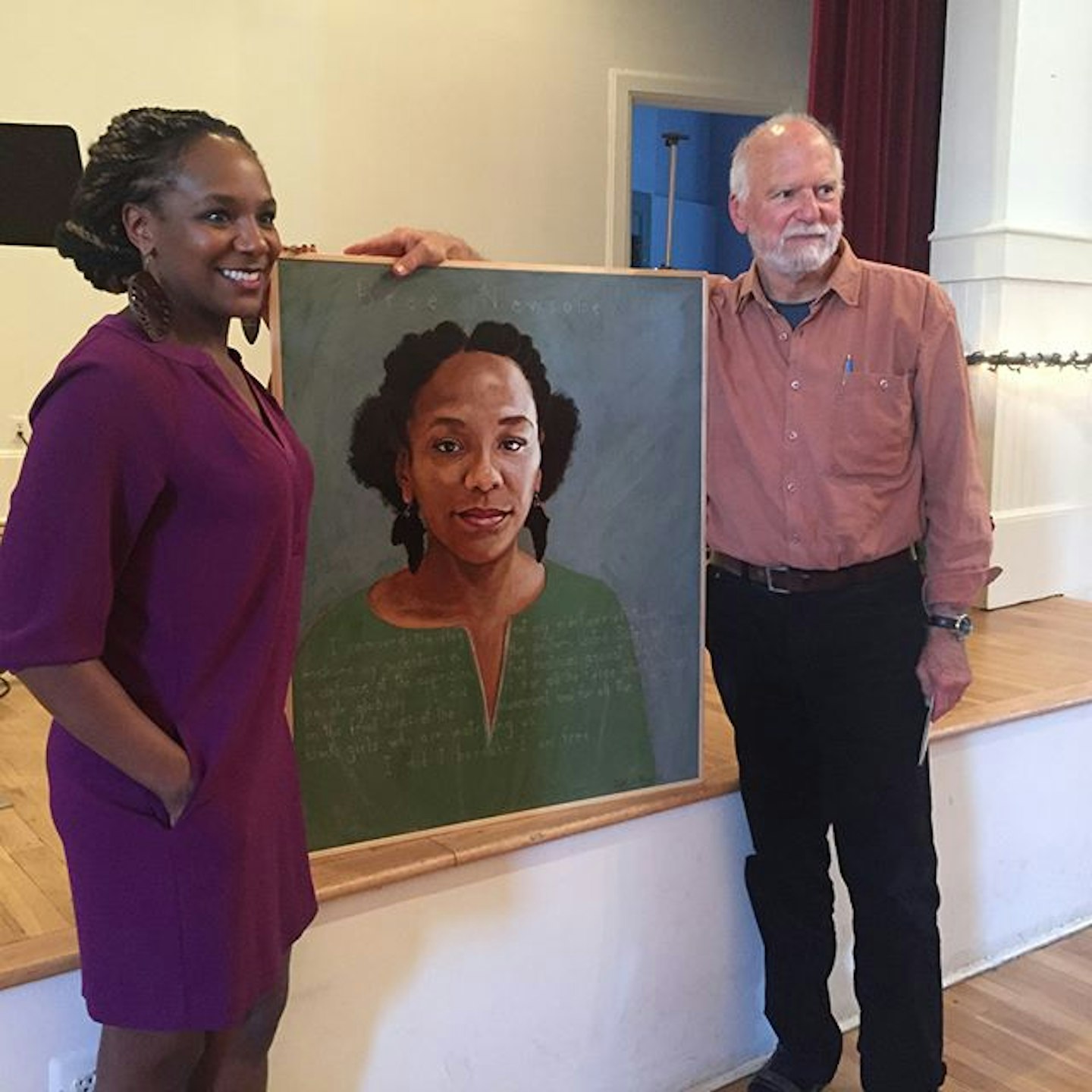 9 of 24
9 of 24Bree Newsome
You may recognise Bree as the activist who took down the confederate flag from a flagpole outside the South Carolina Capitol building. She's continuing her activism with inspiring art you need to see.
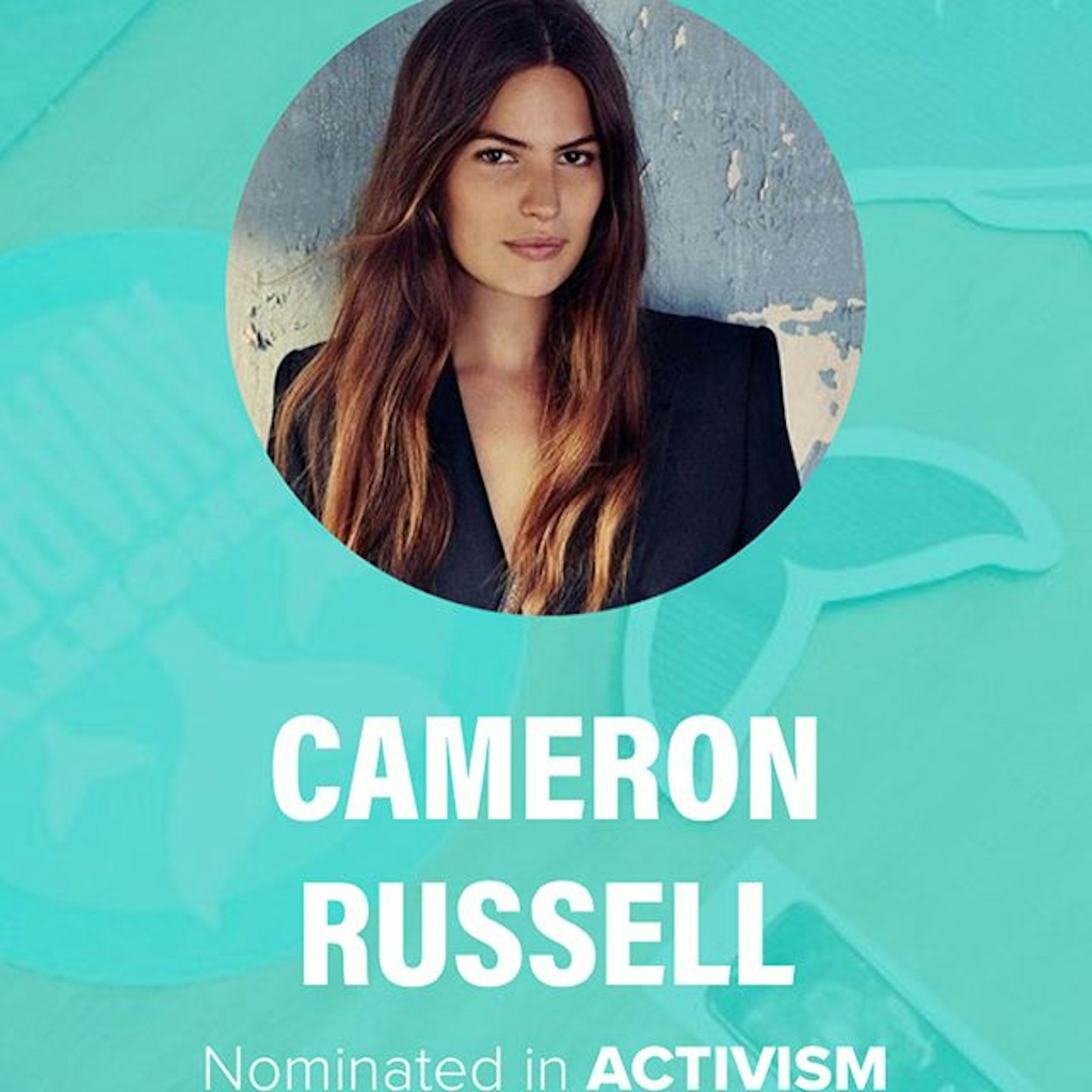 10 of 24
10 of 24Cameron Russell
An american model who called out the fashion industry for sexual harassment and assault, she started the #MyJobShouldNotIncludeAbuse hashtag. Her instagram is full of inspiring stories and educational videos exposing different injustices within her industry and beyond.
.jpg?auto=format&w=1440&q=80) 11 of 24
11 of 24Iskra Lawrence
If your not already following Iskra, your living under an Instagram rock. The body positive model started her own business, everyBODY with Iskra, to give health and fitness advice beyond just getting super skinny. You need her body posi vibes in your life.
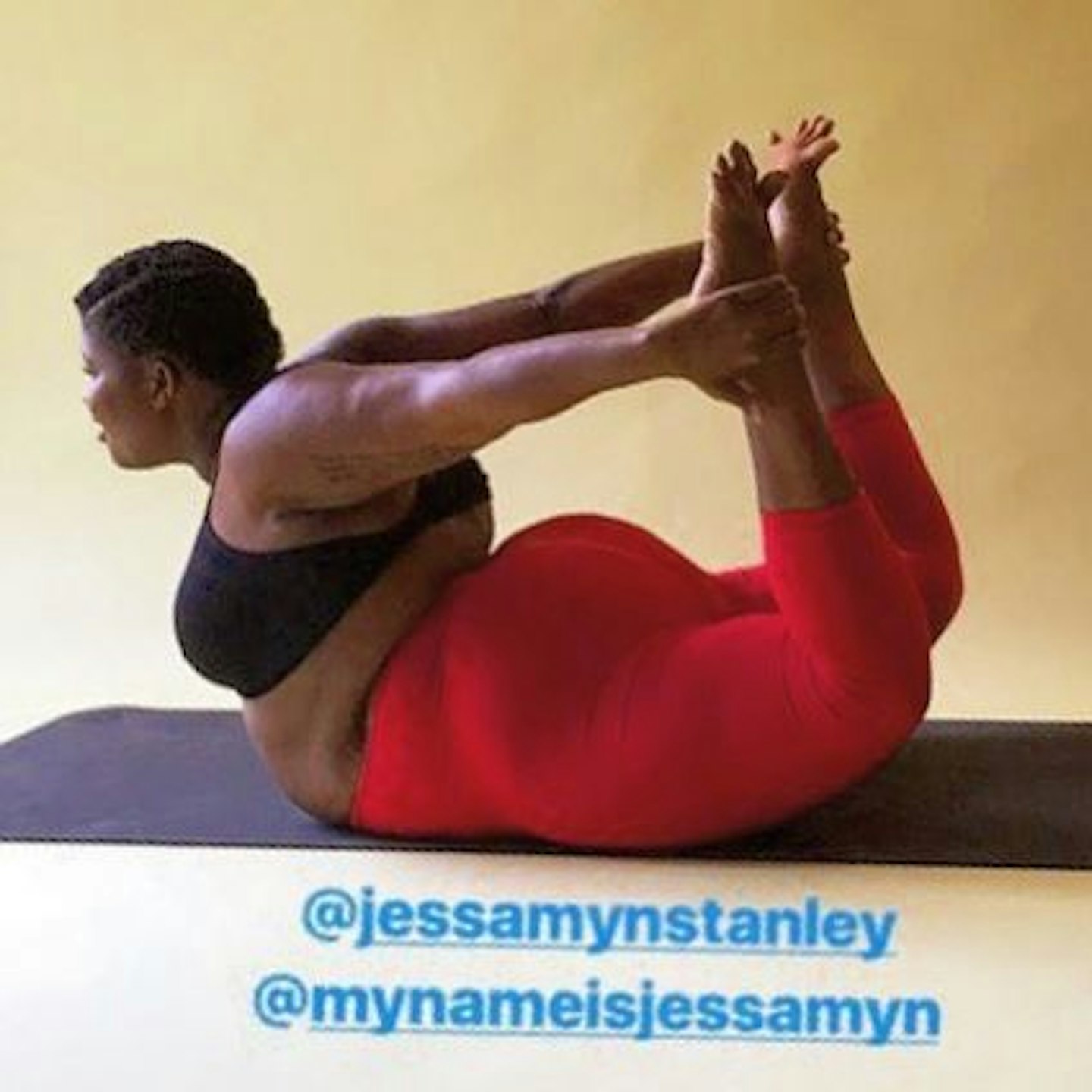 12 of 24
12 of 24Jessamyn
Another super body positive account to follow, Jessamyn is a yoga teacher regularly posting about the emotional and physical benefits of body positivity and practicing yoga.
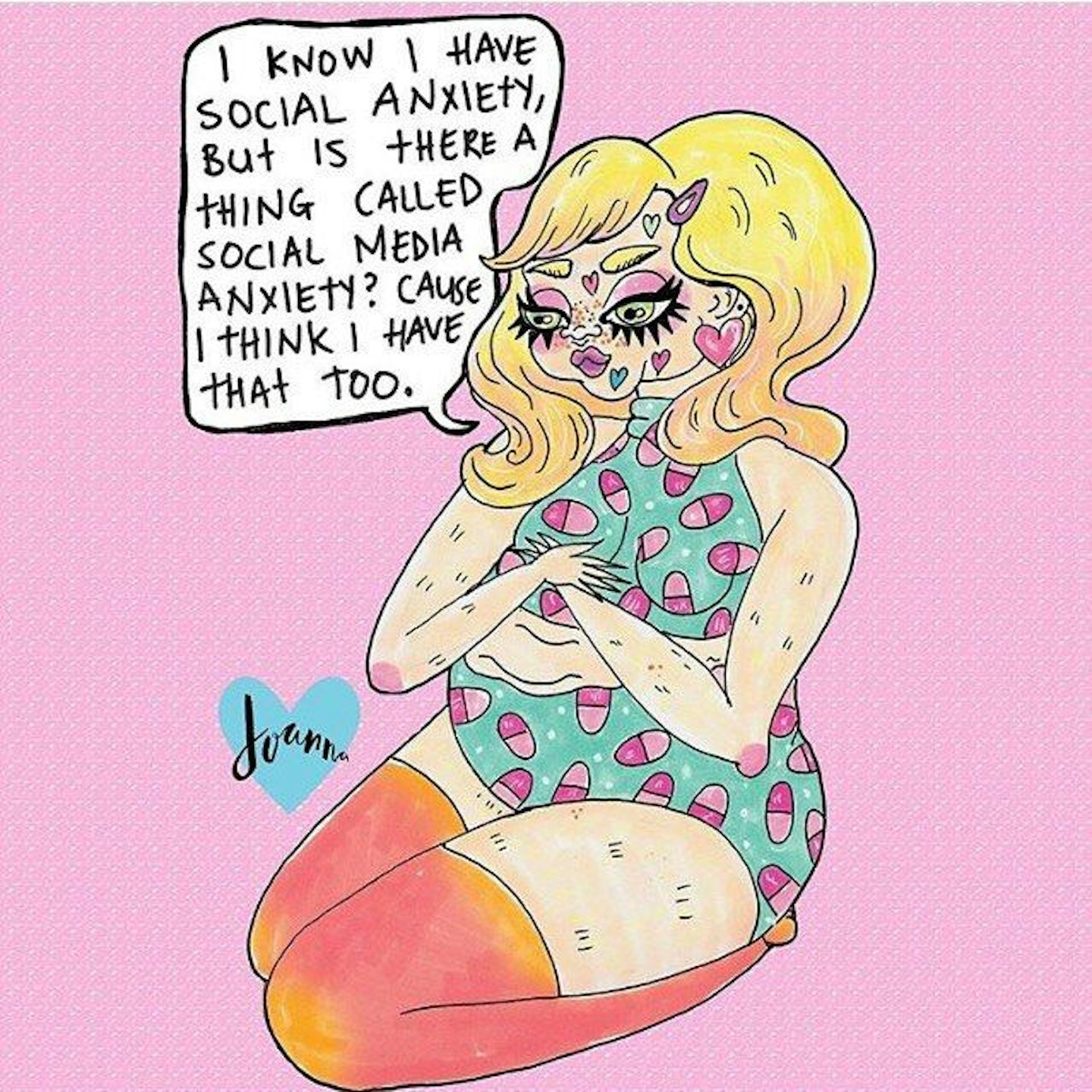 13 of 24
13 of 24Joanna Thangiah
Shun your timeline of filtered selfies and over exposed holiday destinations. It's time for some feminist, mental health aware art! This account is amazing for cute cartoons that say everything we're already feeling.
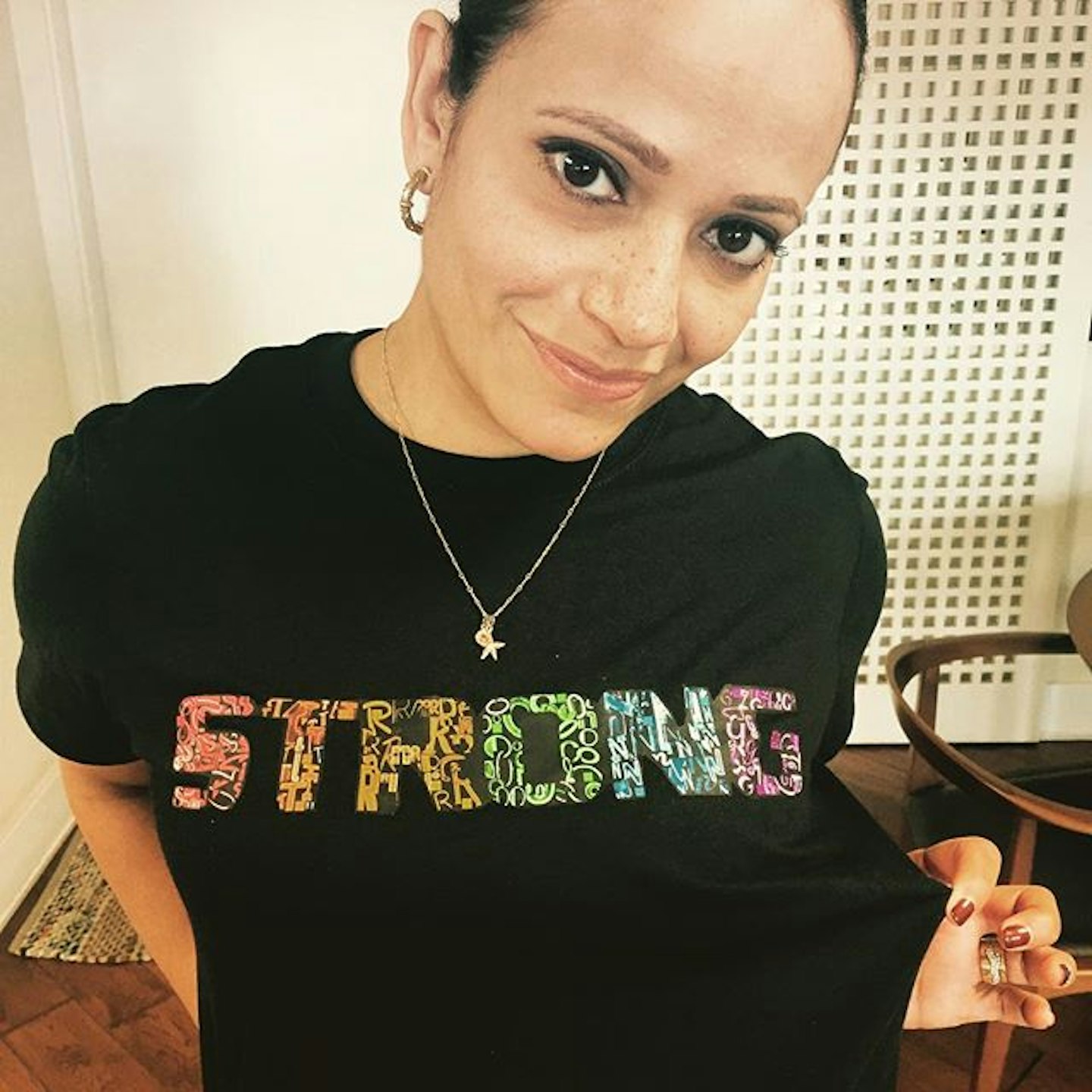 14 of 24
14 of 24Judy Reyes
You'll probably remember Judy as Carla from Scrubs, or one of the other thousand TV show she's been in throughout her insanely successful career. Unlike most Hollywood actors, her Insta is full of activism and news you need to know.
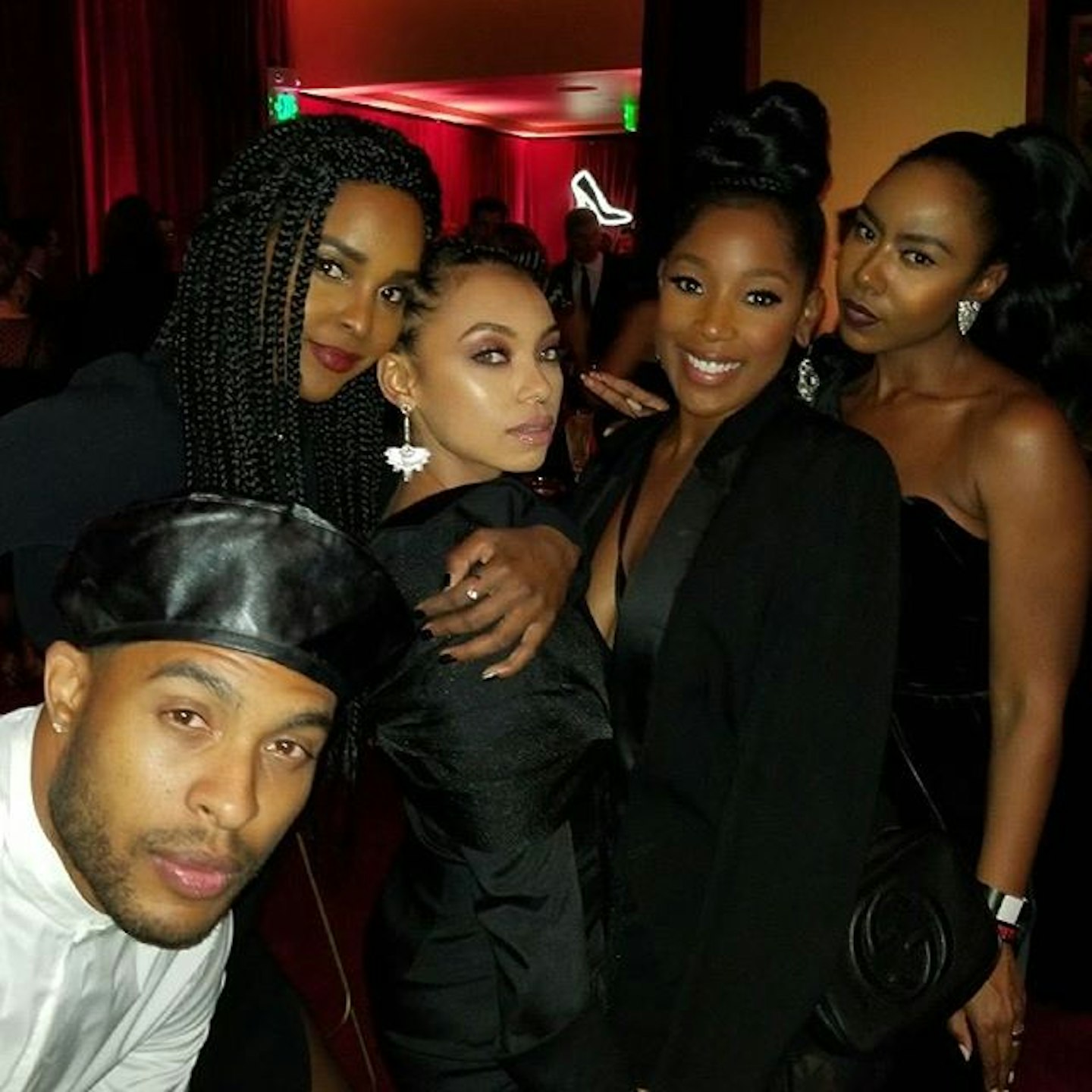 15 of 24
15 of 24Logan Browning
Activist and actor, Logan Browning is the lead of Netflix hit Dear White People. Posting powerful content and links to charities you can donate to so you can turn your online activism into action- she's a force to be reckoned with.
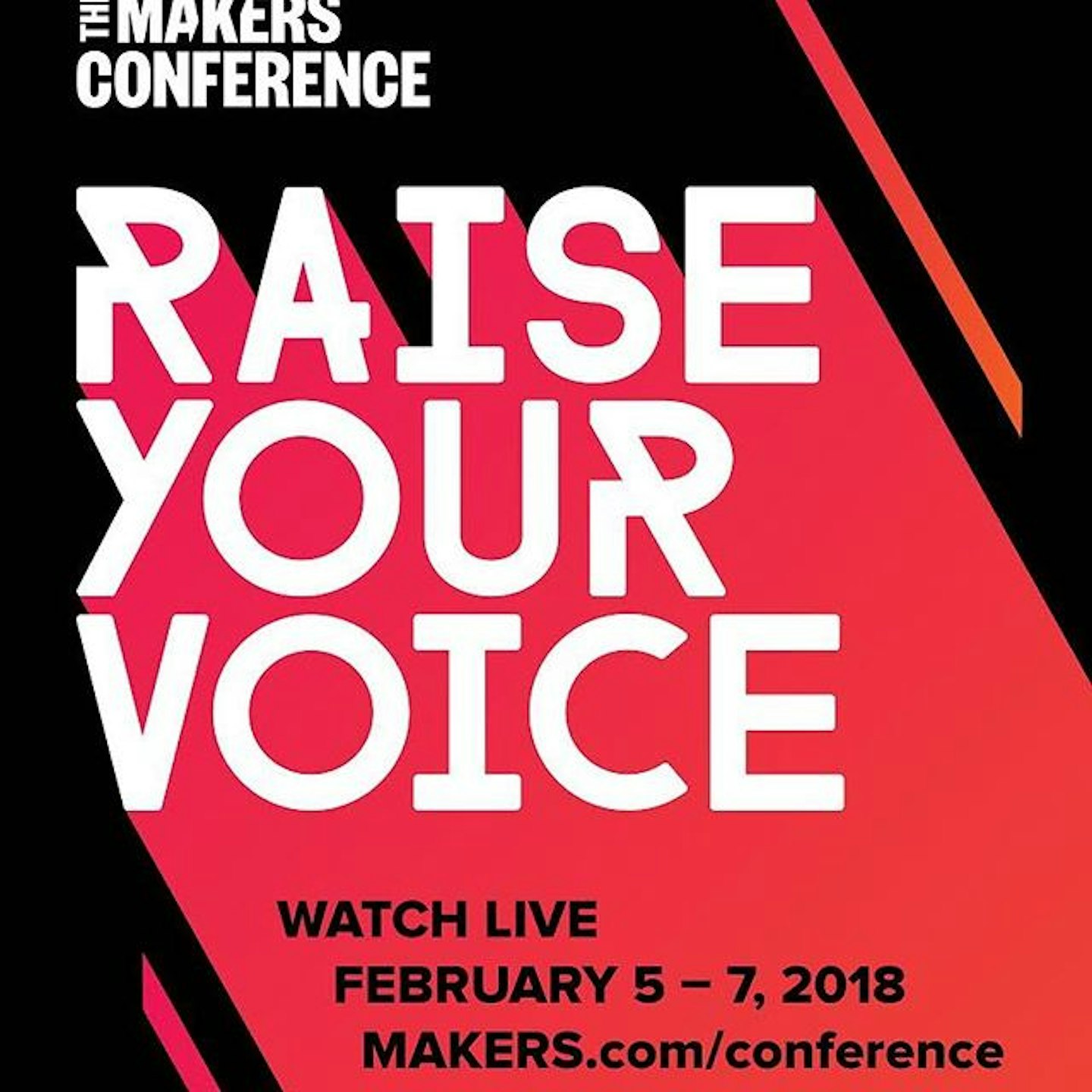 16 of 24
16 of 24Makers Women
MAKERS is a storytelling platform for women, posting quotes to keep you inspired throughout the day. Stay up to date with gender injustice, while also feeling hopeful with the powerful words these amazing women have to say.
.jpg?auto=format&w=1440&q=80) 17 of 24
17 of 24Nimisha Bhanot
Another artist you need to follow, Nimisha creates amazing prints (which you can buy) critiquing societal perceptions of South Asian women. She's based in Canada, but these prints can brighten up your timeline anywhere.
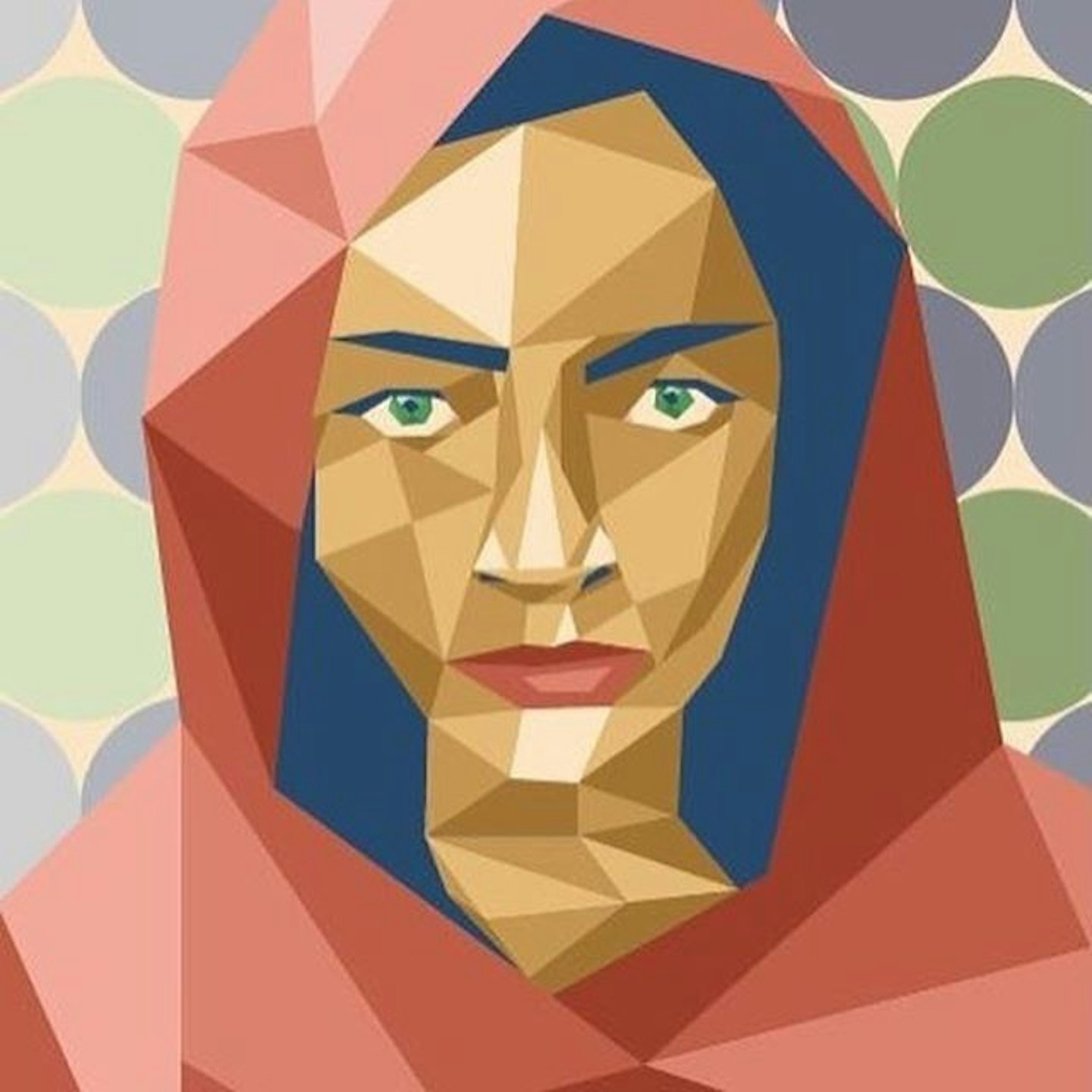 18 of 24
18 of 24Muslim Girl
Muslim Girl, where 'muslim women talk back' is an account ran by Amani. Advocating for issues facing muslim women, both accounts are an inspiration and necessity on your feed.
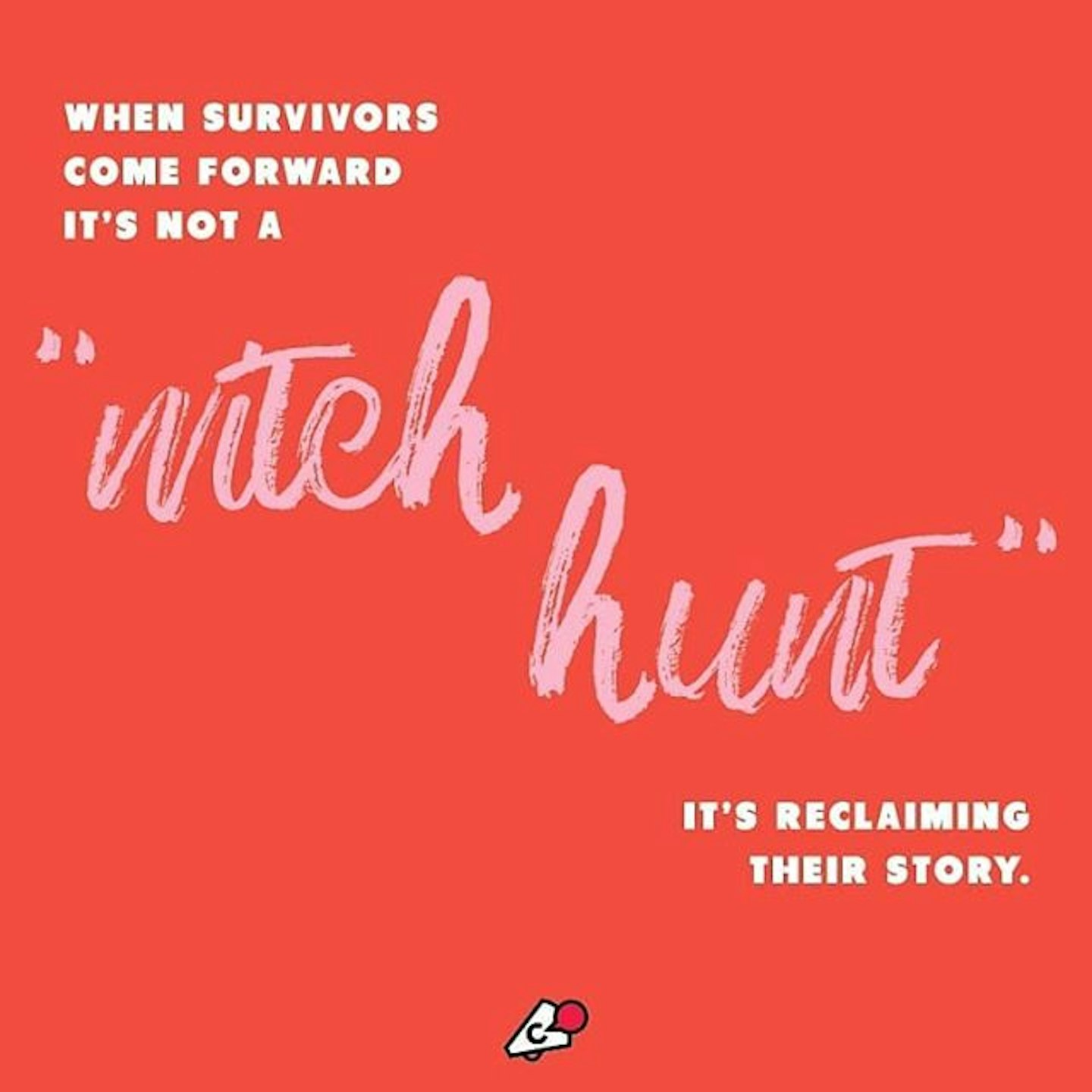 19 of 24
19 of 24Project Consent
There's no time like the present to be educating people on consent. This account does exactly that, and gives you the perfect explanations, comebacks and reminders to throw out at a dinner party if the issue comes up.
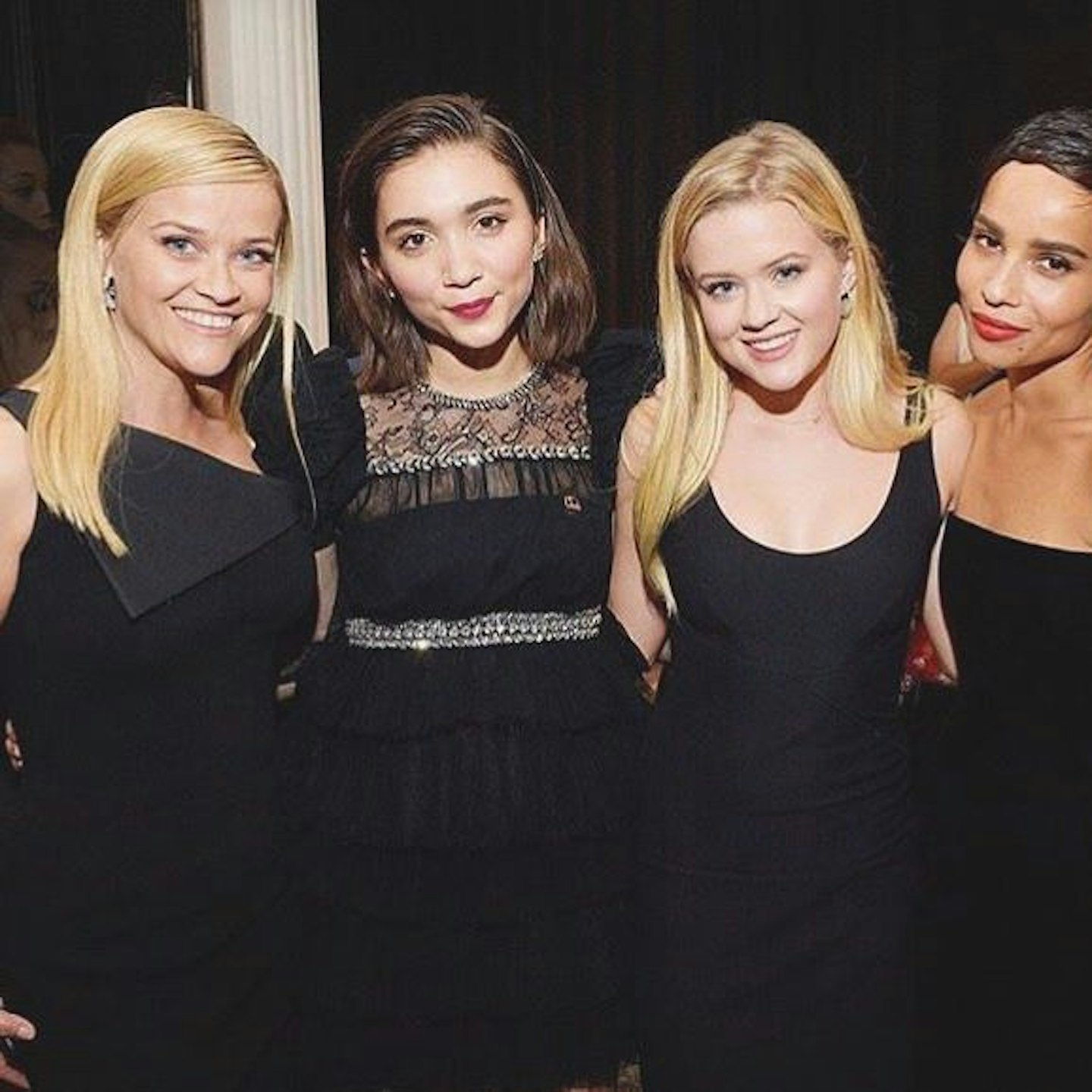 20 of 24
20 of 24Rowan Blanchard
Gone are the days of Disney stars going off the rails, this actor and activist is a beacon of positivity- especially online. Fighting gender and race injustice and beyond, she's one to watch.
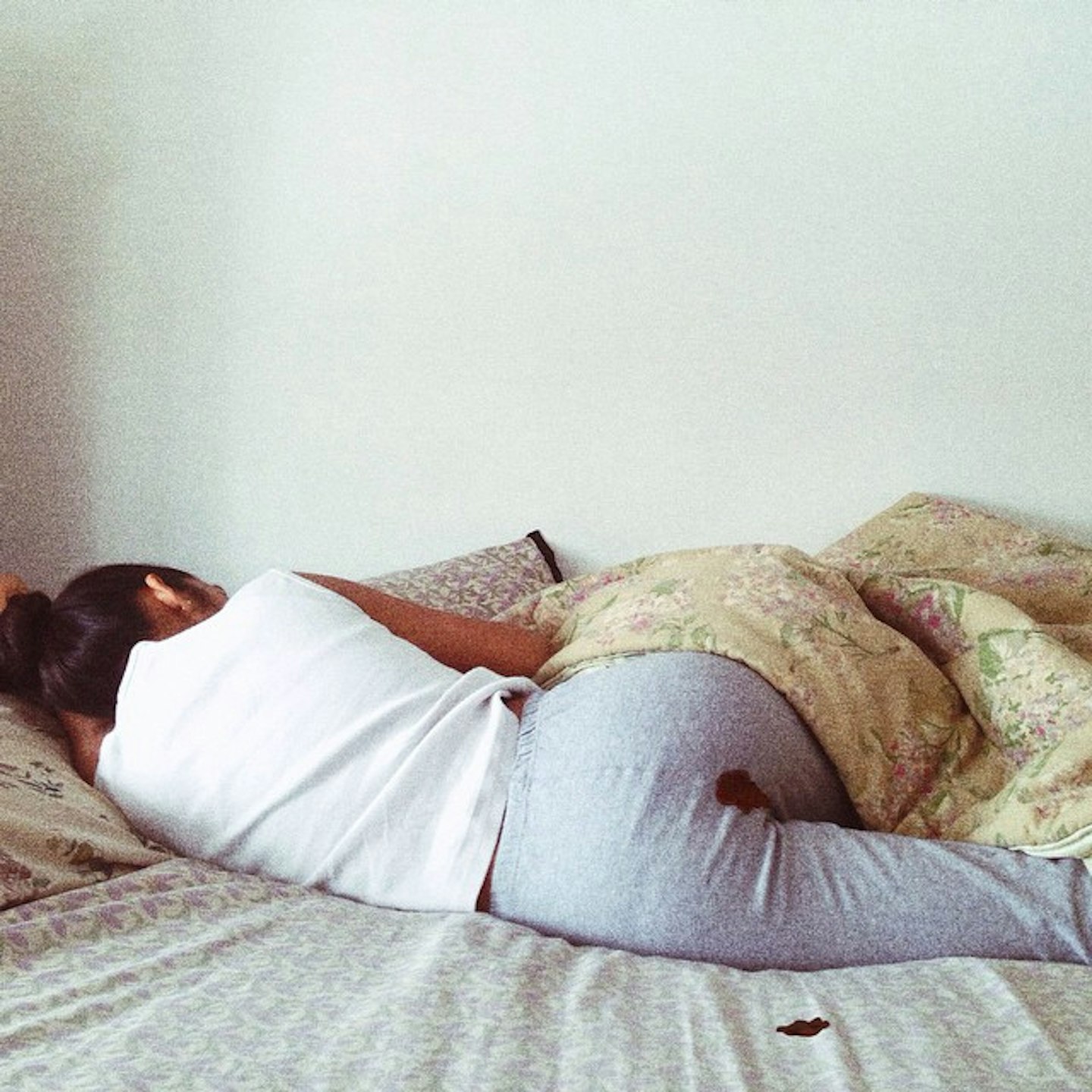 21 of 24
21 of 24Rupi Kaur
Rupi made headlines in 2015 when she posted pictures of her on Instagram with visible menstrual blood. Her posts were blocked by Instagram, causing backlash against the social media platform. She continues to break boundaries with her writing and poetry.
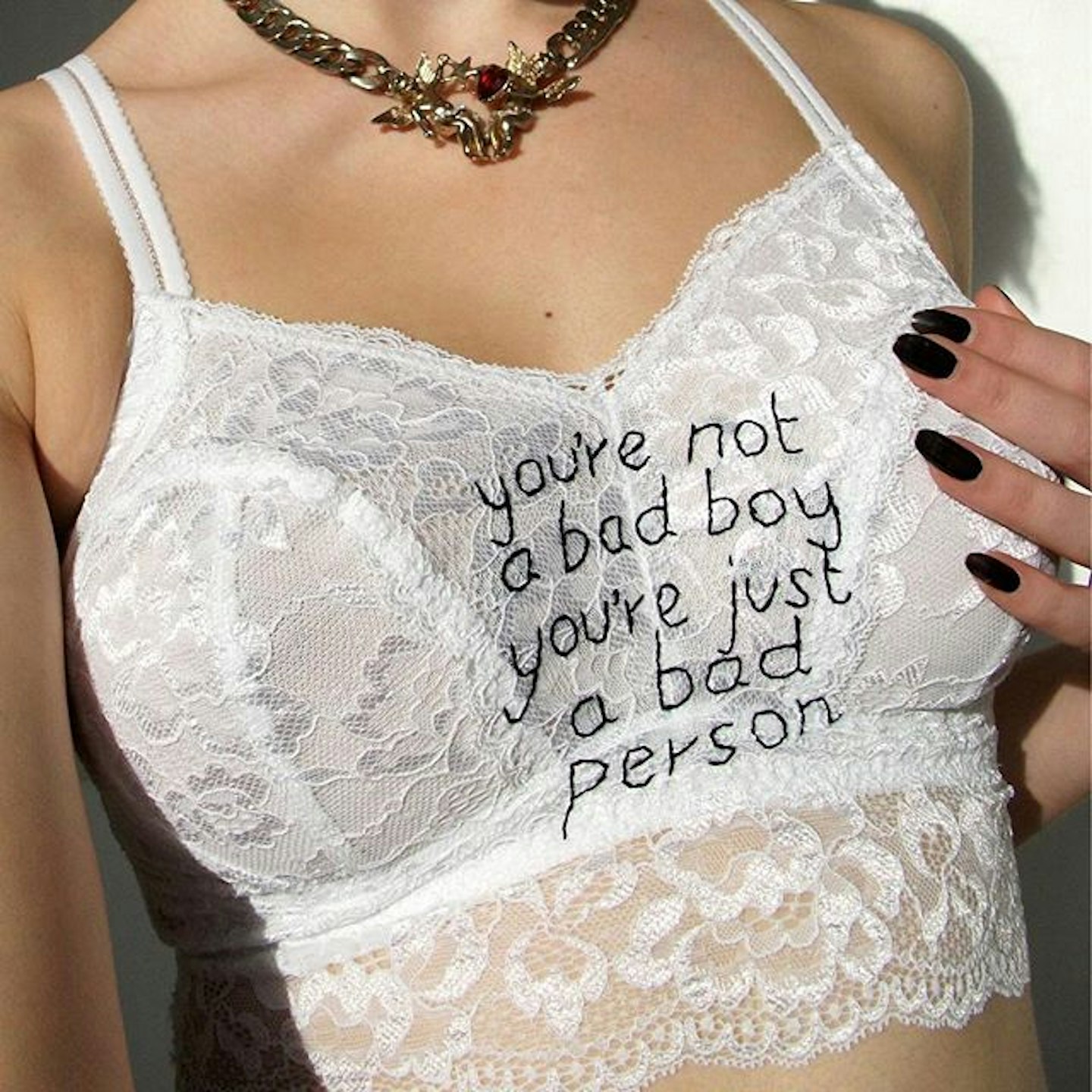 22 of 24
22 of 24Sophie King
This UK based embroidery artist is an up-and-coming star, embroidering feminist slogans onto everything from bras to roses. Bring her insta to life with her slogan t-shirts, or just stare at the pretty pictures, either way she's someone you should follow.
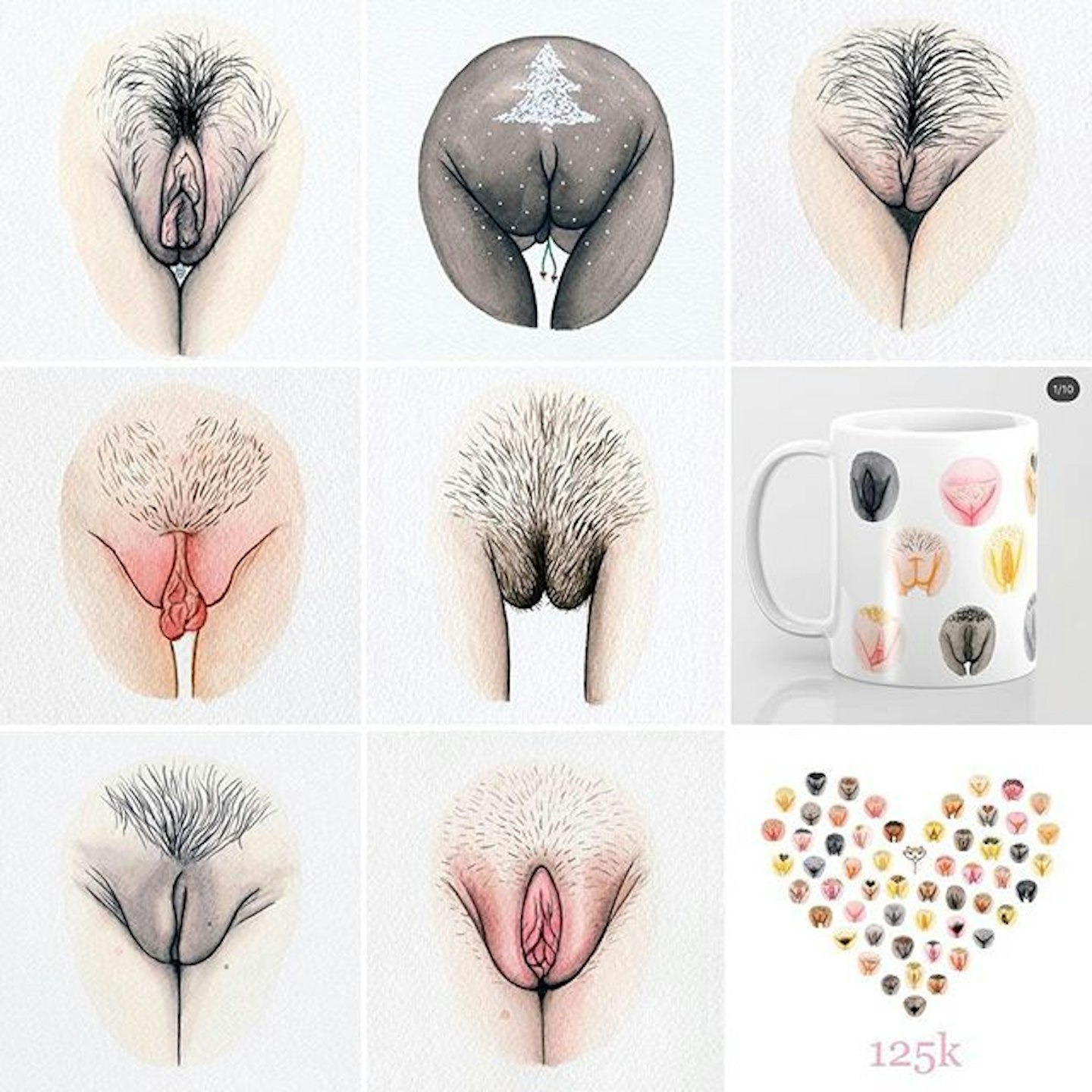 23 of 24
23 of 24The Vulva Gallery
Our favourite of all the accounts, the vulva gallery promotes self-love in an area SO often ignored. With two-thirds of women avoiding smear tests, life-saving procedures, because of the look of their vagina, it's time we stopped all of the self-loathing around genitals. Providing a regular reminder that all vaginas are beautiful, if you only follow one account of this list, it should be this one.
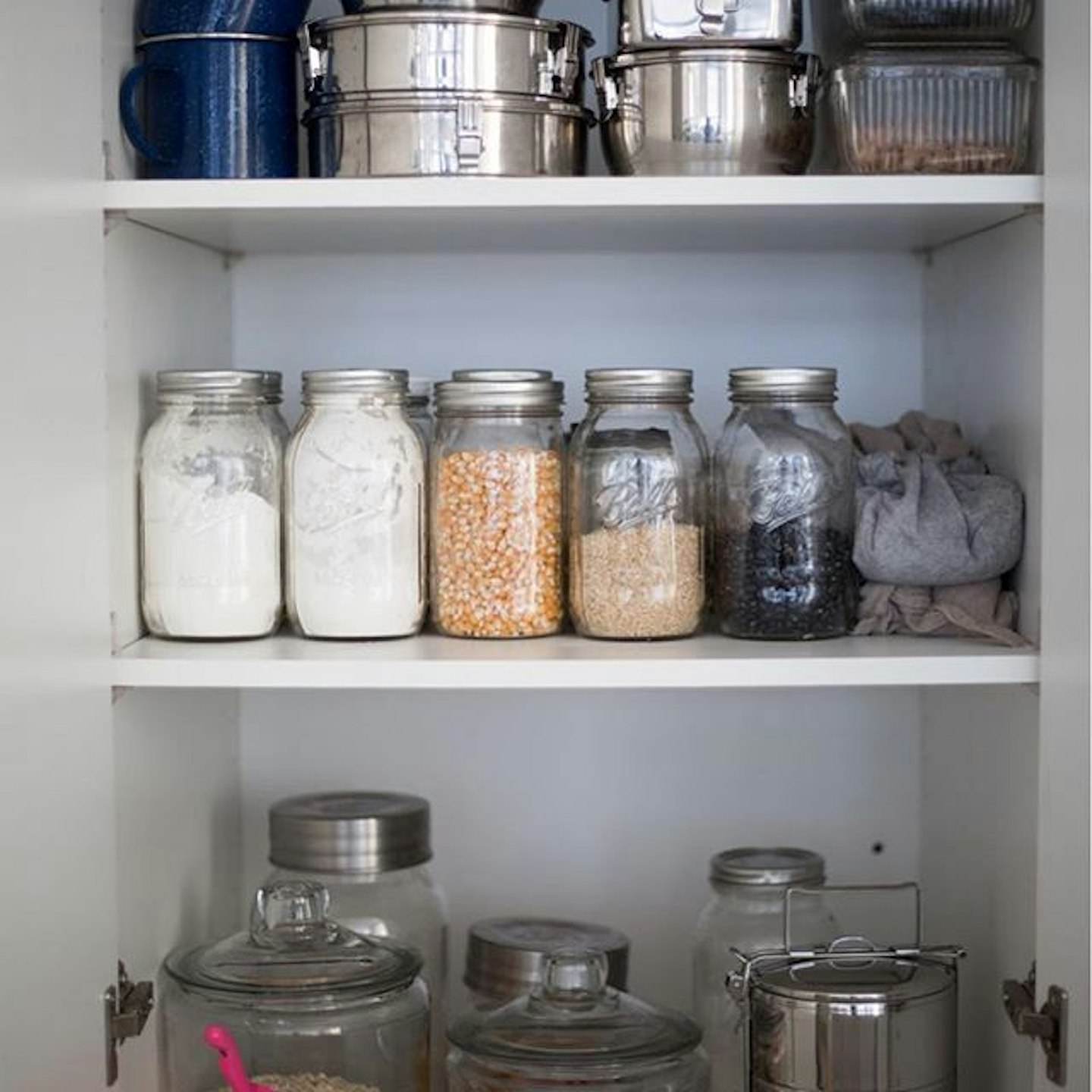 24 of 24
24 of 24Trash Is For Tossers
Lauren Singer lives an entirely waste-free life. Yes, you can actually do that. As #plasticfree takes over our news feed, it's time you had some daily advice on how exactly to reduce your waste. Save the planet!
Scarlett admits that to anyone who isn’t used to seeing such posts by lifestyle bloggers, the picture ‘may look utterly ridiculous’. But she points out that she was transparent about the picture being an advert, and says she tries to use her platform positively: ‘I blog about subjects such as the chronic digestive condition I suffer from and mental health.
‘I think people lose touch with the fact that there’s a real person behind all of this, with feelings and a family.’
Emma agrees, saying, ‘When you tweet a criticism of somebody, you’re not thinking about the potential impact on that individual; you’re thinking about the shared consensus regarding your feelings, which makes you feel validated. But you have no control over how it affects that person.’
The answer, then, is perhaps as simple as considering whether we’d say whatever we’re about to tweet to the person’s face. If we wouldn’t dream of it, maybe we should find another, less toxic, outlet for that rage.
